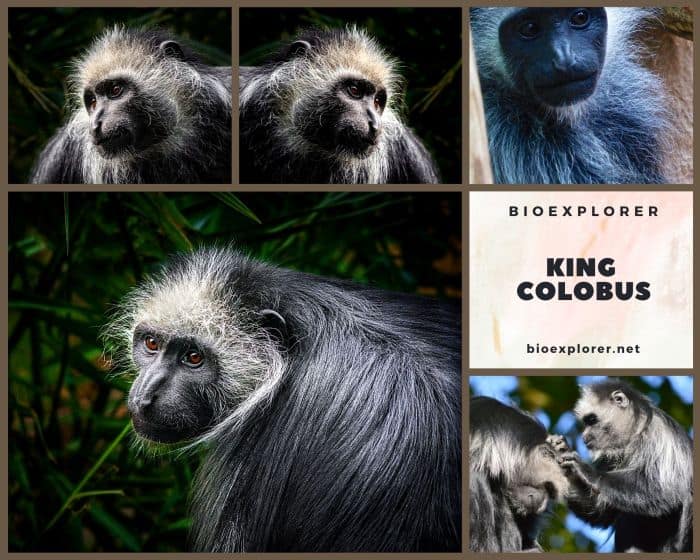
| Animalia | Primates | Cercopithecidae | Colobus | Colobus polykomos |
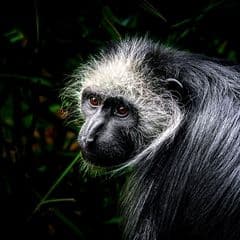

- Common Names: King Colobus, Western Black and White Colobus
- Taxonomy Classification Year: 1780
- Monkey Size: 45 to 72 cm (17.72 to 28.35 in)
- Skin Color(s): Black
- Habitat: Forest, rainforest, scrub forest
- Diet: Herbivorous
- Native Countries: Senegal, Guinea-Bissau, Guinea, Sierra Leone, Liberia, Ivory Coast
King Colobus Distribution
King Colobus Characteristics
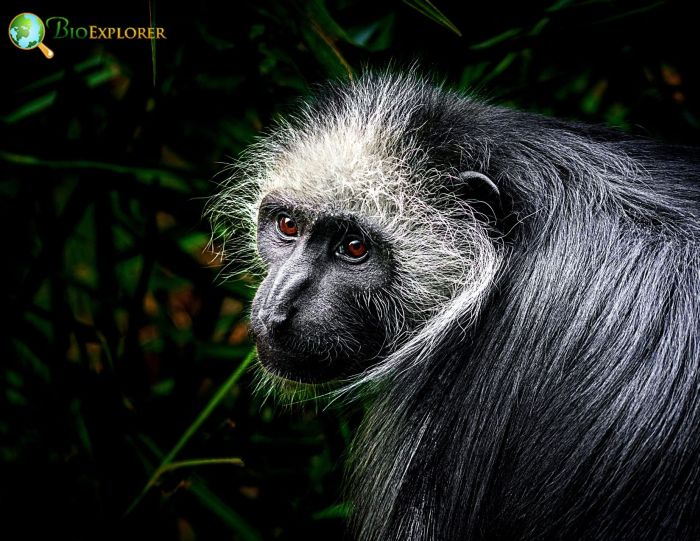
The king colobus[1] (Colobus polykomos), also called the western black and white colobus is a species of Old World monkey found in lowland and montane rainforests.
- The king colobus has white markings like most other species in the Colobus genus, but this species is notable for having a white chest and whiskers, while the rest of the body is black.
- Also, the King Colobus’ tail is all white and not bushy. The king colobus has a slender body with a long tail and prominent rump callosities.
- A complex hollow stomach is present, but there are no cheek pouches.
- The thumb is reduced to a simple tubercle, the skull is slightly prognathous, and the eye sockets are oval with narrow brow ridges.
- The nostrils are elongated by an extension of the nasal skin and can extend almost to the mouth.
What Do King Colobus Monkeys Eat?
The King Colobus diet includes the following plants[¶]:
- Fig (Ficus)
- Hairy Rock Fig (Ficus glumosa).
- Boleko Nut (Ongokea gore).
- Persimmons (Diospyros)
- Ohia (Celtis zenkeri)
- Chinalaurel (Antidesma)
- Raphia Palm (Raphia africana).
- African Nutmeg (Pycnanthus angolensis).
- Sacred Garlic Pear (Crateva religiosa).
- Chinese Banyan (Ficus thonningii).
- Guanabanilla (Ouratea striata)
- Leaf Flower (Phyllanthus)
What Eats King Colobus Monkeys?
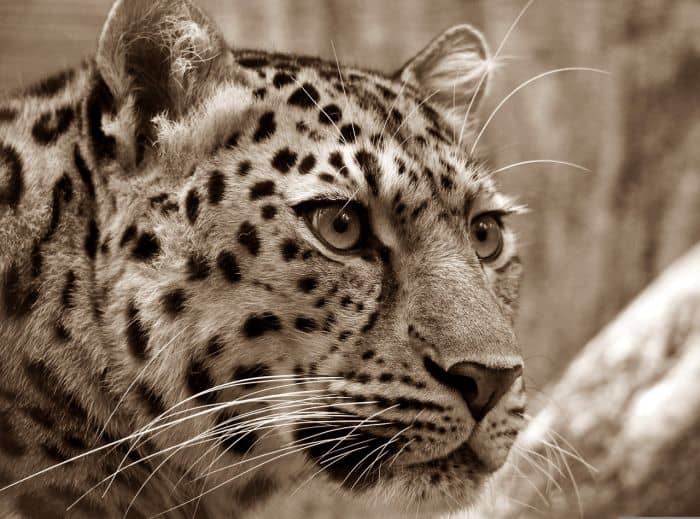
Leopards (Panthera pardus) are the primary predators of King Colobus monkeys[§].
King Colobus Facts
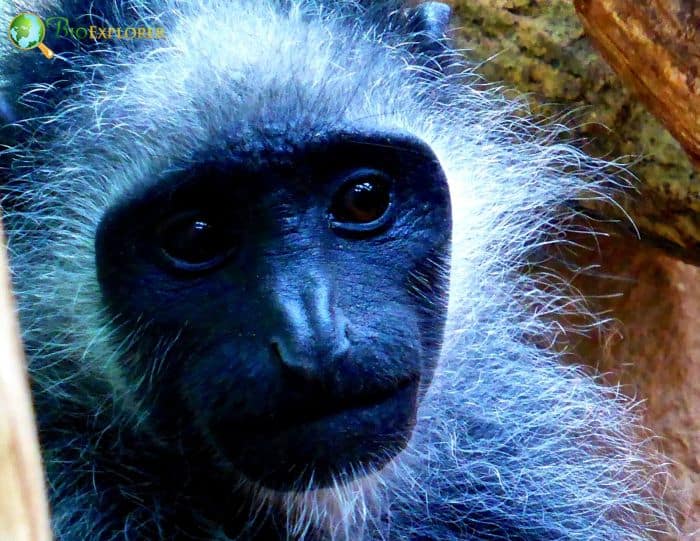
- Colobus polykomos usually live in small social groups consisting of 3-4 adult females and 1-3 adult males.
- Unlike males, females interact closely: males hardly interact and try to exhibit dominance.
- Although C. polykomos is generally very arboreal, members of this species have been seen foraging on the ground.
- Their reliance on seeds, leafy vegetation, and fruits can affect plant communities, including seed dispersal.
- The king colobus has been shown to live around 23.5 years in captivity and possibly around 30 years in the wild.
Suggested Reading: All Kinds of Monkeys
Cite This Page
APA7MLA8Chicago
BioExplorer.net. (2025, May 28). King Colobus. Bio Explorer. https://www.bioexplorer.net/animals/mammals/monkeys/king-colobus/.
BioExplorer.net. "King Colobus" Bio Explorer, 28 May 2025, https://www.bioexplorer.net/animals/mammals/monkeys/king-colobus/.
BioExplorer.net. "King Colobus" Bio Explorer, May 28 2025. https://www.bioexplorer.net/animals/mammals/monkeys/king-colobus/.











